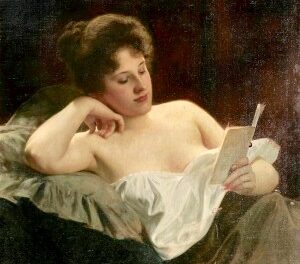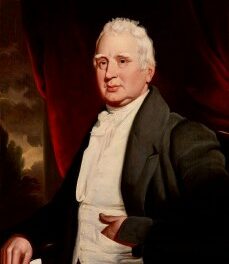We support our Publishers and Content Creators. You can view this story on their website by CLICKING HERE.
“On the Role of Literature in Formation” is perhaps Pope Francis’s best document of his pontificate. Short, sweet, and full of good lines quoted and written. And yet he remains a “second friend” to many of his flock because they see their own world in some fundamentally different ways than he does.
Pope Francis’s pontificate has been, to put it mildly, controversial. His judgments—theological, administrative, and otherwise—have generally cheered those who seem to want the Catholic Church to resemble the liberal Protestant groups that are evaporating before our eyes. The ambiguity with which Francis has expressed many of these judgments has unleashed before us a small army of “popesplainers,” those who feel a bounden duty to tell anyone worried about statements, appointments, or any other papal action that such a worrier is a bad, faithless person who ought to trust and get with the non-judgmental vibe of Francis’s papacy.
It’s all very tiresome.
Yet no ridiculous overreaction goes unpunished by a complete overreaction in the other direction. If the popesplainer militia torments us with ridiculous accusations from one side, we get from another side the insistence that Francis is a kind of omnimalevolent actor whose every action must be maximally evil and whose every statement must be absolutely twisted. I don’t think even Dante, who put five popes in hell in his own great tale, was quite as dire as some Catholics are.
As I, with St. Paul, have no interest in making final judgments about my own soul, I really have no interest in judgments about Francis’s. It seems obvious that this papacy will not be judged kindly by future Catholic or secular historians. But that does not mean all of the pontiff’s works have been bad or even that all his ideas are.
One of the most profound difficulties about Francis for this writer has been the fact that Francis’s own tastes in reading have significant overlap with his own. Benson’s Lord of the World? Check. Romano Guardini’s The Lord? Check. Dostoevsky’s Notes From Underground and The Brothers Karamazov? Allesandro Manzoni’s The Betrothed? Check, check, and check. How is it that we can like the same books and yet see the world so differently?
Perhaps the way to think about Pope Francis is that of “second friend.” In his autobiography, Surprised by Joy, C. S. Lewis described different kinds of friendship. The “first friend” is simpatico. He pretty much sees everything the same way you do:
But the Second Friend is the man who disagrees with you about everything. He is not so much the alter ego as the antiself. Of course he shares your interests; otherwise he would not be your friend at all. But he has approached them all at a different angle. He has read all the right books but has got all the wrong things out of every one. It is as if he spoke your language but mispronounced it. How can he be so nearly right and yet, invariably, just not right?
This way of thinking occurred to me when reading Pope Francis’s “On the Role of Literature in Formation,” released on August 10. In this letter, which seems to bounce between an appreciation for literature in the life of all humans and its role in priestly formation, which the pope says was the goal of the first drafts, the pontiff quotes Lewis himself (twice), Jorge Luis Borges, T. S. Eliot, and Marcel Proust, among other authors.
From the beginning, I found myself nodding along to many of the key themes: “the value of reading novels and poems as part of one’s path to maturity”; the power of a good book in difficult times to “help us weather the storm until we find peace of mind”; the superiority of the written word to “audio-visual media” because “a book demands greater personal engagement on the part of its reader”; the power of the book and that greater engagement to “renew and expand our worldview.” If I hadn’t known who was writing this, my heart would have begun to leap at the possibility of a first friend.
So, too, his applause for seminaries that purposefully limit screen time and make as part of their formation “devoting time and attention to literature.” I teach at a seminary and, as for my other lay students, I have banned screens in the classroom this year so that attention to the texts we are discovering and to each other might be accomplished. All of us need such bans at times. And with Pope Francis, I regret that not enough seminaries have a “grounding in literature” as part of the formal formation program. My experience teaching college seminarians in the Catholic Studies program at the University of St. Thomas in Minnesota, where the means of engagement with Catholic faith and culture was often largely through literature, showed me that such formation can indeed make for better priests. I agree with Pope Francis that, “Literature thus has to do, in one way or another, with our deepest desires in this life, for on a profound level literature engages our concrete existence, with its innate tensions, desires, and meaningful experiences.” Priests and future priests who don’t read literature do miss out on an opportunity for imaginative reflection on this mysterious life.
And yet, if he had me at “novels and poems” from the beginning, the letter (fairly short by his standards at about five thousand words) perhaps inevitably moved me from thinking about a first friend to that of a second. Recounting teaching at a Jesuit school in the mid-sixties, the pope recalls how he was supposed to be teaching El Cid but decided to accede to student wishes to read contemporary works of literature. Though I’m not completely opposed to such a decision and do agree that teaching even pretty good literature can open students to “a more general taste for literature and poetry,” as he testifies happened to his students, I blanched at his summary judgment: “There is nothing more counterproductive than reading something out of a sense of duty, making considerable effort simply because others have said it is essential.”
Part of growing up, and particularly part of education, is realizing that if we wait till things appeal to us, we’ll likely never do them. That’s why teachers make students read things in classes. Pope Francis partially takes back this somewhat rigid judgment later when he admits, “The difficulty or tedium that we feel when reading certain texts is not necessarily bad or useless.” But the rigid anti-rigidity themes that have been so common to his statements come back in this document.
I was in full agreement with his statement that we start to gain access to the core of cultures to which we wish to offer Christ’s fullness if we “set aside or fail to appreciate the ‘stories’ by which they sought to express and lay bare the drama of their lived experience in novels and poems.” And it is absolutely true that Christian understanding is deepened by encounter with what is true in other cultures. We do want to be free “from the temptation to a blinkered, fundamentalist self-referentiality that would consider a particular cultural-historical ‘grammar’ as capable of expressing the entire richness and depth of the Gospel.” But when he attributes this self-referentiality to others who wish to “sow despair” in the Church or proceeds later in the letter to talk about “a soulless absolutizing of the law,” one cannot help but read this as yet another attack on traditional and traditionalist Catholics.
No doubt there are traditionalist and traditional Catholics who might be a bit narrow in their literary and artistic judgments and also that are judgmental. We see them, as we see all insane people, on the internet daily. But, like his reference in an earlier letter to confessors who turn the confessional into a “torture chamber,” these figures are outliers. The great temptations in the Church are neither to narrow the scope of art to one particular “cultural-historical ‘grammar’ as capable of expressing the entire richness and depth of the Gospel” nor to a “a soulless absolutizing of the law.”
No, the Holy Father moved firmly back into second friend category here. The modern temptations with regard to art and literature are to reject anything that goes before us, to be trapped in the tyranny of our liquid modern world in which it is impossible to use any cultural-historical grammar but our own secular impoverished one, to be unable to access the riches of all the cultures and history that ended up being incorporated into Catholic culture. He recounts how he answered a reporter upon his return from Japan about what the West can learn from the East: “I think that the West lacks a bit of poetry.” And yet the poetry of the East is seen in its very precise rituals and forms; this poetry is glimpsed much more in the older rituals and language that many traditional Catholics love and which he has so often deprecated. Indeed, even in this letter, he speaks of literature as “toppling the idols of a self-referential, falsely self-sufficient and statically conventional language that at times also risks polluting our ecclesial discourse, imprisoning the freedom of the Word.”
The problem is that the older theological language is much less self-referential than what often replaces it. The language of technical theological language needs translation, of course. But translation opens up how this language was developed and argued over centuries and continents by theologians and philosophers. It carries the weight of centuries. The best Catholic literary voices have always served the freedom of the Word with their creativity—but they did so because they knew, understood, and could translate the traditional language.
The Catholic temptations with regard to moral judgment in stories or in real life these days are still primarily the temptations to non-judgmentalism. Right now, it is in the secular literary world in which the “death sentence, eliminating persons or suppressing our humanity for the sake of a soulless absolutizing of the law” are present in judgment. That because the movements of relativism there have yielded to tyranny in the name of political correctness. If we read the pope charitably here, we can say that such lines are still useful.
For all the benefits of literature, what is missing from this letter, despite the language of “discernment” that permeates it, is the recognition that there can be dangers to literature. There is a softening of the edges that have been there in earlier writers. There is no doubt that, as the pope quotes from Basil of Caesarea, the advantages of pagan classical literature (and, by extension, other non-Christian literature) are many. But Jerome’s famous worries about his attachment to the classical authors were not simply the result of a dyspeptic nature. If literature has power for good, it certainly has power for evil.
John Henry Newman, who certainly appreciated literature (he published hundreds of poems and two novels), was insistent that there might be duties to read dangerous things. Nonetheless, he insisted that such reading did have dangers, noting that “knowing what can be said on both sides of a subject, is a main step towards thinking the one side as good as the other.” We should know views contrary to our own, but we don’t always immediately recognize them as contrary. Pope Francis’s emphasis, taken from Borges, that in literature we hear the voice of another is a good one. So, too, that we are allowed to see through others’ eyes. That through the literary word we may be readied “to welcome the Word that is already present in human speech” is also true. But the problem is that literature has many voices, not all of which are useful in readying us for that Word. Some of which hinder us. More words about this discernment might be useful in an age in which the narrators are not like the classical authors, groping in the darkness for light. All too often our modern literature is written by those hiding from the brightness of the light. That does not mean we cannot learn from them. But if we need a bit of caution with dealing with the classics, we need a great deal more in dealing with modern literature. Yet there is little here that would indicate this.
This is perhaps Francis’s best document of his pontificate. Short, sweet, and full of good lines quoted and written. And yet he remains a second friend to many of his flock because they see their own world in some fundamentally different ways than he does. Ours is not a world in which knowledge of Scripture or Christian tradition or language are all-present and repeated without translation. Ours is a world in which such knowledge is either garbled or, in too many cases, simply not there. To this world, both words and the Word are strangers. Christian fundamentalism, of a Catholic or Protestant variety, still exists. But it is tiny compared to the world of other, non- and even anti-Christian fundamentalisms. To his second friends, much of the precision of language, doctrine, and ritual that he considers sterile is seen in a very different way. He may have grown up with it; they have not. To them, it opens the way both to a forgotten past and also to a richer future in which the openness to the Word he desires can be more readily and safely obtained.
The Imaginative Conservative applies the principle of appreciation to the discussion of culture and politics—we approach dialogue with magnanimity rather than with mere civility. Will you help us remain a refreshing oasis in the increasingly contentious arena of modern discourse? Please consider donating now.
The featured image is “Man Reading by the Hearth” by Vincent Van Gogh (1853-1890), and is in the public domain, courtesy of Wikimedia Commons.

 Conservative
Conservative  Search
Search Trending
Trending Current News
Current News 






